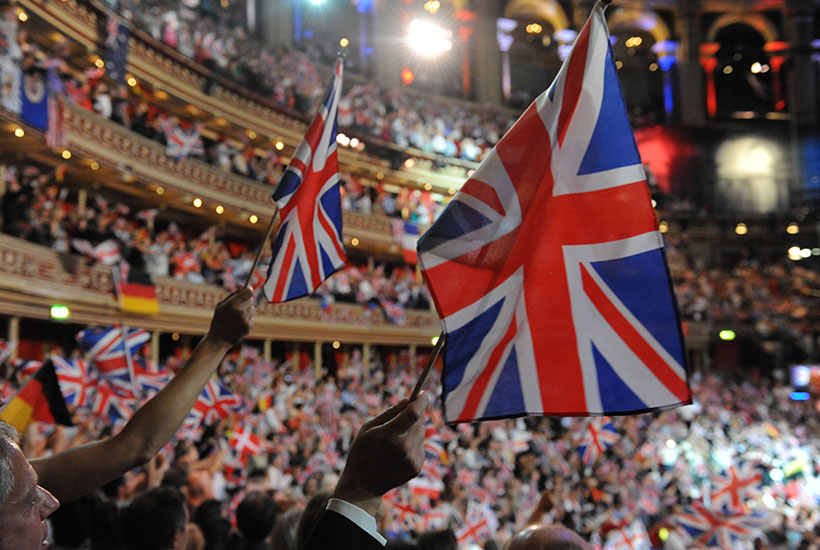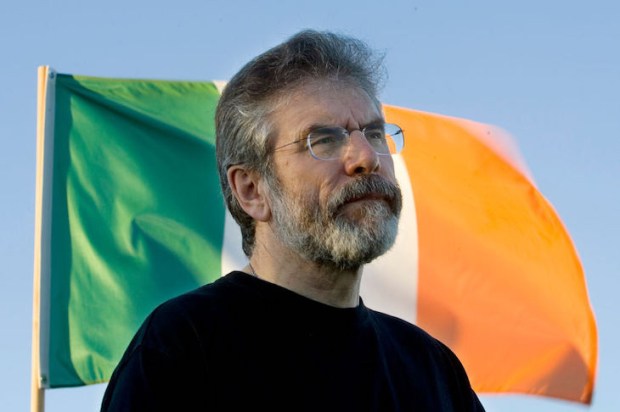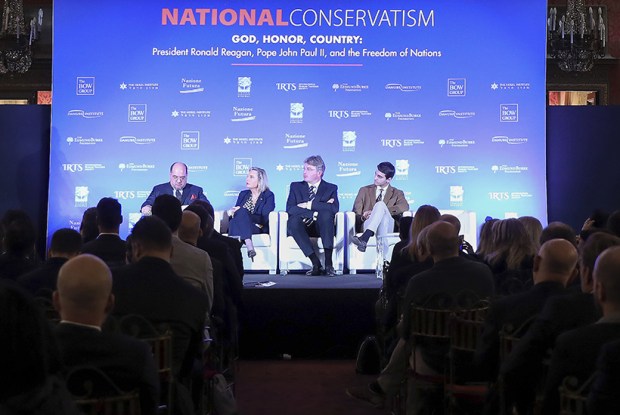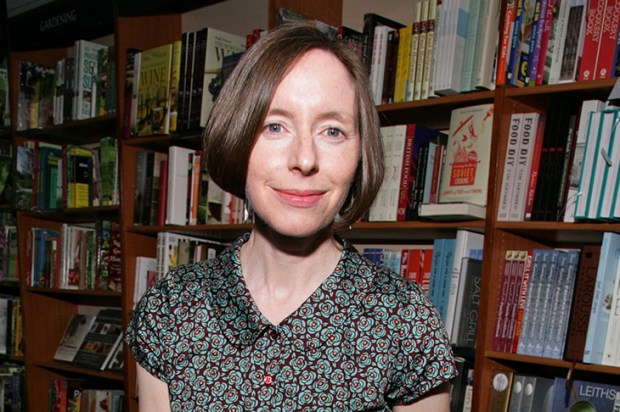Last weekend’s papers claimed that the government desires a ‘massively pruned back’ BBC. Former Conservative cabinet minister Damian Green and someone called Huw Merriman spoke out against this, which allowed the BBC to put the headline ‘BBC licence fee: Tory MPs warn No. 10 against fight’ atop its characteristically impartial coverage. I suppose there are various reactions one can have to this, ranging from outrage at supposed ‘cultural vandalism’, via a vague shrug, all the way through to the full Charles Moore. In recent years I have moved through all these stages.
The discovery that mattered most was the realisation that the less BBC I had in my life, the better. Starting with the discovery that no one seeking to begin the day happily should listen to Radio 4 before midday. Even Radio 3 should be approached with care. As the years went by I realised that I just needed Aunty less and less. Netflix makes better dramas and documentaries. Amazon Prime has a greater range of products. Neither charge me for an easy listening channel I’m uninterested in or a pop radio station that can damn well pay for itself. I get my news elsewhere. I’ve seen wars more amusing than BBC comedy. And now YouTube offers us a lifetime of free, serious, long-form political-cultural discussion while the BBC tries to palm us off with those three-minute, multi-guest ding-dongs.
There was always one available riposte to such complaints: ‘Ah, but the Proms.’ And for a time I found the argument compelling. If a tax had to be levied across the UK in order to produce the BBC Proms — the cost of which accounts for far less than 1 per cent of the corporation’s annual budget — then so be it. Until I recognised that the Proms had become the BBC’s cultural beard: a disguise to allow the corporation to down-speak everywhere else.
It didn’t help when the Proms also started going that way. Not just in the ever-growing novelty concerts (film music, jazz, finally pop), but in the contempt with which the corporation treats its own crown jewel, shunting what concerts they bothered to film into the graveyard of BBC4. And then there was Alan Titchmarsh. It was Titchmarsh who pushed me over. To my knowledge neither Harrison Birtwistle nor James MacMillan have ever been drafted in to present Gardeners’ Question Time. Neither Lucian Freud nor George Steiner were invited as judges on The Great British Bake Off. But when it came to the Proms the BBC chose to throw any old low-brow celeb it had to front it, so long as it helped cover the corporation’s embarrassment at having this one, lone product of high culture.
If even that term seems anachronistic today, then it is in large part thanks to the BBC. Not long before his death I asked George Weidenfeld what had most changed in our culture in his near century at the heart of it. He said he thought it might be the evaporation of the categories of high-brow, middle-brow and low-brow. It was always a sort of game, of course. One of George’s authors, Graham Greene, was high-brow, always risking slipping to middle. Yet despite its infuriations the game betrayed a truth, and had a utility. You might treat yourself to a low-brow book, but you knew that you should try something high-brow again soon.
Today all the sluices are up, and almost nobody is willing to make the case that one branch of culture might be capable of greater depth, value or seriousness of purpose than any other. Anyone who does so will find themselves dismissed as ‘elitist’ by the demotic cultural down-speak of our time.
Nowhere is this trend more evident than at the BBC. In the one area that a publicly funded broadcaster ought to lead the way up, it only leads the way down. I know a few people at the BBC. All publicly pretend to know less than they do. All pretend to be less culturally discerning than they actually are. It’s in the corporation’s furniture now. Survey what the BBC now presents as great British art and you are most likely to be presented with ‘grime’ music. This is a genre whose leading talent, Slowthai, was last week awarded ‘Hero of the year’ at the NME awards. Mr Slowthai celebrated his recognition by attempting to harass the female host before jumping into the pit to start a fight with some fans. The music is less lovely than its ambassadors.
So allow me to note what the BBC has been lacking for years. Not a single weekly programme on the main channels — not one — to show that the corporation takes high culture seriously. Not a teat for intelligent or discerning people to suckle on. True, every couple of years a programme slips through, last year’s magnificent documentary on Dame Janet Baker being a case in point, but the audience that remembers such things remembers them primarily because the BBC otherwise forgets us.
I must admit that I mind this, not least because when I was growing up I looked to a few programmes on television (including Newsnight Review, but principally The South Bank Show — not a BBC product, of course) to help steer me to what I ought to know. There are still artists, composers and authors I revere who I was first introduced to by television. The BBC played a part in that, causing a gratitude that lingered for years until only recently running almost fully down.
If a tax is to be levied on the television-owning public, then the product should include programming that is improving in a way no commercial rival could be. It is years now since the BBC fulfilled anything like that role. Indeed if you search YouTube — now the BBC’s main challenger — you will see that in the lifetime of nearly everyone reading this the BBC still produced content so informed and enriching that it now looks like the product of a pre-revolutionary era. Intelligent people talking in studios without constant interruption. Documentaries on great artists. The dissemination of culture through the best, most anti-elite, means our species has yet devised.
There is no law that demands that the BBC survives. It is an unnatural beast to begin with. If it lives, then it should be — among much else — an unashamed advocate of high culture. If not, then it should not just be pruned but cut loose — allowed to live or die — like anything else in nature.
Got something to add? Join the discussion and comment below.
Get 10 issues for just $10
Subscribe to The Spectator Australia today for the next 10 magazine issues, plus full online access, for just $10.
You might disagree with half of it, but you’ll enjoy reading all of it. Try your first month for free, then just $2 a week for the remainder of your first year.






![A couple stage a ‘kiss-in’ in front of a Chick-fil-A in Hollywood in protest at the fast-food chain’s opposition to same-sex marriage [Frederic J. Brown/AFP/Getty Images]](https://www.spectator.com.au/wp-content/uploads/2019/10/Douglas_Murray_1.jpg?w=620)








Comments
Don't miss out
Join the conversation with other Spectator Australia readers. Subscribe to leave a comment.
SUBSCRIBEAlready a subscriber? Log in